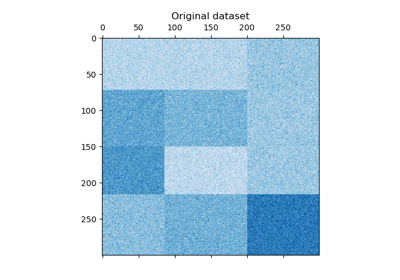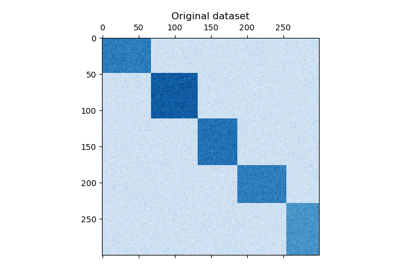consensus_score#
- sklearn.metrics.consensus_score(a, b, *, similarity='jaccard')[source]#
The similarity of two sets of biclusters.
Similarity between individual biclusters is computed. Then the best matching between sets is found by solving a linear sum assignment problem, using a modified Jonker-Volgenant algorithm. The final score is the sum of similarities divided by the size of the larger set.
Read more in the User Guide.
- Parameters:
- atuple (rows, columns)
Tuple of row and column indicators for a set of biclusters.
- btuple (rows, columns)
Another set of biclusters like
a.- similarity‘jaccard’ or callable, default=’jaccard’
May be the string “jaccard” to use the Jaccard coefficient, or any function that takes four arguments, each of which is a 1d indicator vector: (a_rows, a_columns, b_rows, b_columns).
- Returns:
- consensus_scorefloat
Consensus score, a non-negative value, sum of similarities divided by size of larger set.
See also
scipy.optimize.linear_sum_assignmentSolve the linear sum assignment problem.
References
Hochreiter, Bodenhofer, et. al., 2010. FABIA: factor analysis for bicluster acquisition.
Examples
>>> from sklearn.metrics import consensus_score >>> a = ([[True, False], [False, True]], [[False, True], [True, False]]) >>> b = ([[False, True], [True, False]], [[True, False], [False, True]]) >>> consensus_score(a, b, similarity='jaccard') np.float64(1.0)


